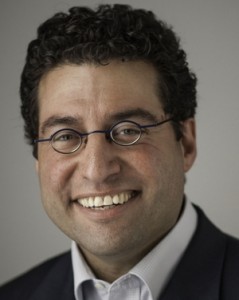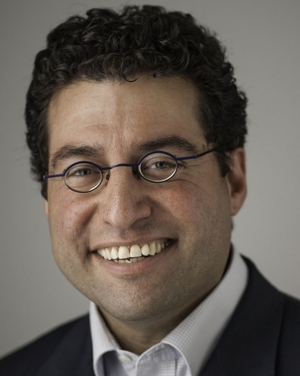Daniel Libenson

I found myself more drawn to the essay’s analysis of the current situation of Jews and Jewish life in America than to any one of the four propositions. In my work today, I am increasingly trying to engage people with the idea that we are a “desert generation” and that this is a “time of wandering,” which isn’t necessarily what people wish was true of the times in which they are living. I believe that this is a time more defined by our process of moving away from Rabbinic Judaism than by what we are moving to and that, rather than trying to rush things and find a new way, we really ought to be wandering, trying different things out, not worrying quite so much, not denying that much of what we have simply will not work anymore, admitting that we really don’t know what will. While it is possible that the four propositions represent a framework (or, more likely, at least for a long time, multiple frameworks) upon which a Jewish future can be built, it is also possible that they do not. As much as we—like any generation, I believe—might wish that we were living in a time during which the outlines of a new Judaism were coming into focus, I don’t believe that we are. As such, what I think we can say is that the four propositions do seem to capture what seems to be working better than anything else, but that’s not necessarily saying all that much, since what is not working is really not working—that is, the bar is pretty low, and the numbers of what is working are also pretty low in the scheme of things.
When I talk about the numbers being low, I hasten to add that I don’t think that’s a bad thing. Indeed, I have been thinking a lot about the idea of the “she’erit”—the remnant—from our mythology. Books about how to turn around a company or organization that is facing a major decline often advise that the company should be cut back to a defensible core from which it can re-grow. I think about when Steve Jobs came back to Apple and famously cut the company’s products from dozens down to four. Now that Apple makes many different products again, people misunderstand that story and think that Jobs wanted Apple to make only four products forever and that Apple has lost focus; but the point is that Jobs knew that in a turnaround you have to get smaller before you get bigger again. As such, I believe that the unbundling and modularization of Judaism is a positive development for our time because it maximizes the variety of experiments that can be tried, and that any given experiment is likely to be quite small for quite a long time and that success cannot and should not be judged by the current numbers of people involved; it is more a question of whether it has potential to grow in the future. Another way of thinking about this is that a line representing a very low level of growth and a line representing the beginning of an S-shaped curve look exactly the same until the point that the S-curve goes vertical, and you will make different assumptions about what is likely to happen on the Y-axis depending on where you think you are along the X-axis.
The question of whether we are closer to the beginning or to the end of our time of wandering is important. If we are near the end, then it makes sense to ask what we have learned and what seems to work so that we can focus our investment on the most promising remnants, where the experiments that we have run indicate the most likely areas of success. But if we are nearer to the beginning, then it may well be that we are seeing something of a “founder effect”—that we haven’t even run some of the most promising potential experiments yet due to chance, and the ones that appear to be most successful are only so in relation to what is no longer working from the past and to other things we have tried, but we cannot say how they would compare to what we have not yet tried. I believe that what has caused the “crash” of Rabbinic Judaism, as my friend Benay Lappe puts it, is the outgrowth of the Enlightenment and Emancipation that, in part because the Holocaust, were only fully realized within the past thirty years or so; in the scheme of these kinds of transitions, thirty years—and even a hundred—is not much.
My other concern about the four propositions is that, if they are restated as wisdom, values, community, and spirituality, they may be so general that almost anything, whether successful or not, can be classified as one of them because these represent the main dimensions of human needs once the basic needs of Maslow’s hierarchy have been met. To the extent that the four propositions leave out some of the more basic needs—food, shelter, etc.—that many twentieth century Jewish organizations are built around, I do think they are valuable in making the statement that these no longer seem to work or be needed. In any event, my work is more focused on trying to understand the approaches within the four areas that make Judaism feel valuable to people, such as: What kind of wisdom do people need in these times? What kind of spirituality do people need if they don’t believe in God?
At the end of the day, I would say that my work does focus on the area of “wisdom” because I believe that our tradition contains within it—whether by design or by accident, or both—deep wisdom about going through times of transition. Our central myth, that of the Exodus and its aftermath, contains much wisdom about any process that moves from exit to innovation to stability, and the Talmud and our history amplify and build on this wisdom. In my view, this is the wisdom we really need today.
______________
Daniel Libenson is Founder and President of the Institute for the Next Jewish Future, an education and idea center dedicated to inspiring radical Jewish creativity and accelerating bold innovation in Jewish life. He is also Founder and Director of Jewish U, a campus organization focused on empowering students to build Jewish communities and home-based experiences for themselves and their peers. Dan is currently working on a book, tentatively titled “Disruptive Rejuvenation,” on the changing nature of Judaism.



October 26, 2016 @ 4:57 pm
Well said!